Department of Network Engineering
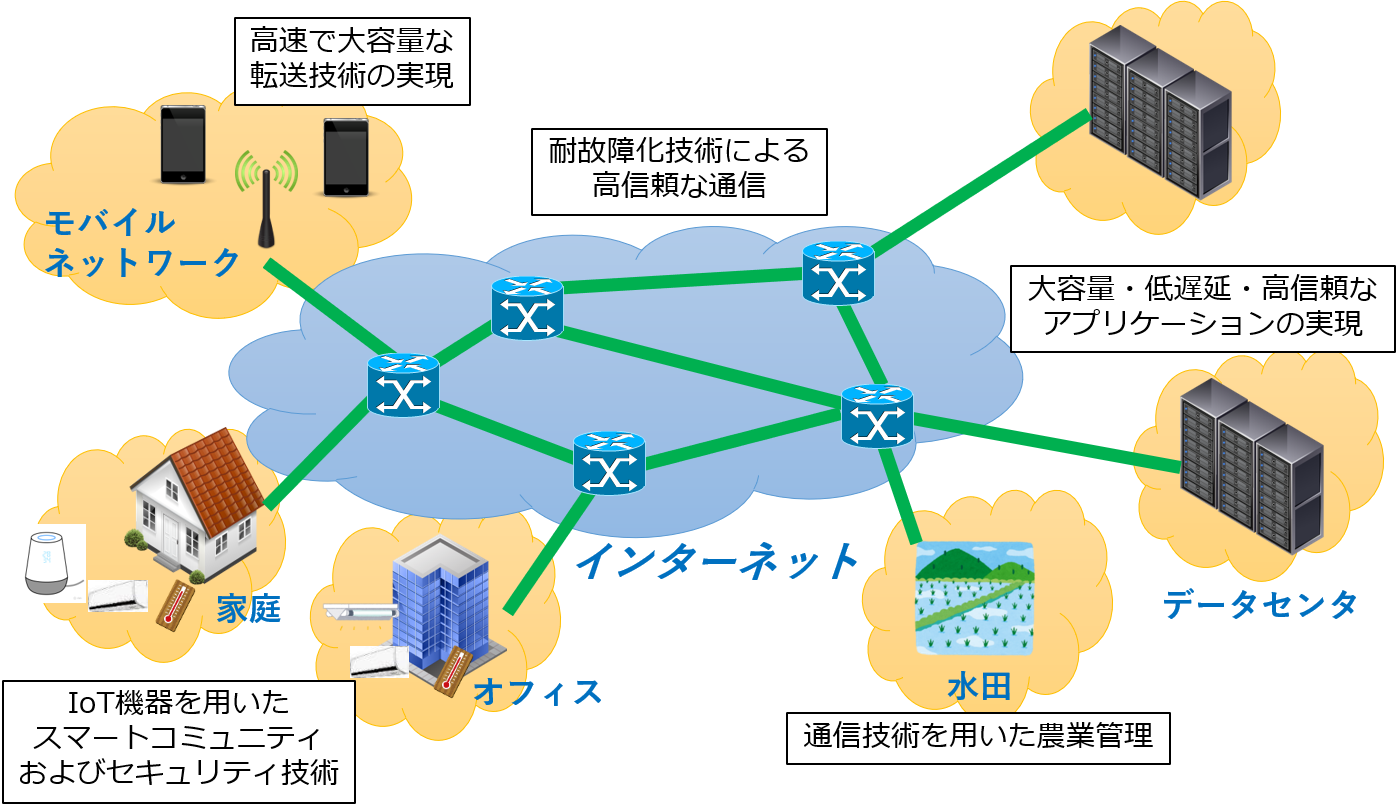
Computer Networks and Medical Information[YOKOHIRA Tokumi (Professor)]
With the spread of IoT (Internet of Things) devices and appearing various applications, the Internet is required to have higher speed and lower latency and be highly reliable. At our laboratory, we conduct research to improve the speed and performance of the Internet and other information networks. Moreover, we also research the smart community with IoT devices and the security of the IoT network and devices.
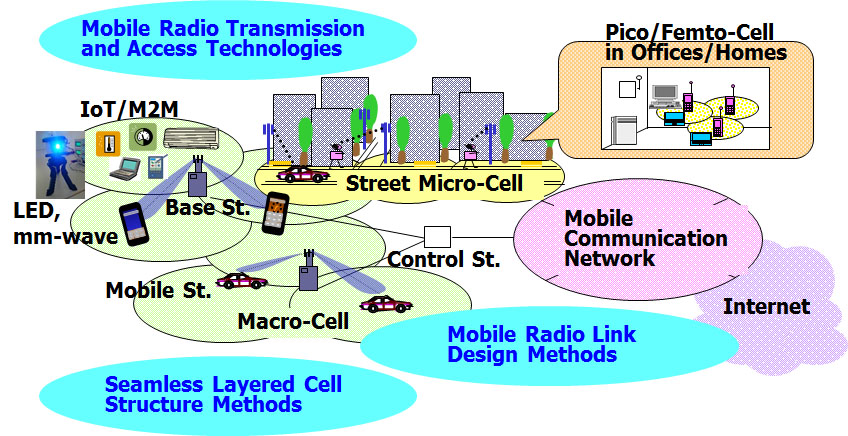
Mobile Communications[UEHARA Kazuhiro (Professor), TOMISATO Shigeru (Associate Professor)]
This laboratory conducts research on mobile radio wave propagation characteristics, area prediction methods, system-to-system interference, and system coexistence methods. Our major research challenges include: technology for implementing next-generation mobile communication systems for the provision of 100 Mbps or faster multimedia services, notably as an indispensable condition, the ultrafast high-capacity technologies of OFDM/OFDMA and MIMO channel signal transmission; and sensor network technology enabling seamless service area implementation and less-constrained area expansion.
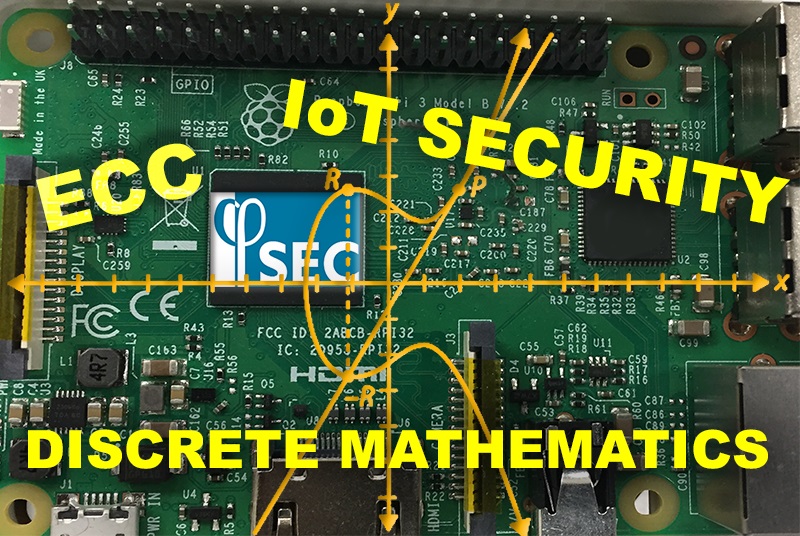
Information Security[NOGAMI Yasuyuki (Professor), KODERA Yuta (Assistant Professor)]
The Secure Wireless System laboratory pioneers research and development of information security technology of particular importance in today’s information society, such as data encryption and user authentication. The laboratory’s research and development topics include elliptic curve cryptography (ECC), which ensures extremely high safety with a small amount of information, and pairing-based cryptography, an application of ECC. Specifically regarding digital authentication technology known as public key cryptography, the laboratory focuses on the development of a method that enables the user to set a desired encryption strength without impairing computation efficiency.
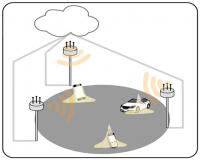
Multimedia Radio Systems[DENNO Satoshi (Professor), Hou Yafei (Associate Professor)![[New window]](https://www.eng.okayama-u.ac.jp/ec/en/wp-content/themes/en/images/file_icon/new_window.svg) ]
]
The Multimedia Radio Systems laboratory conducts research on wireless communication systems for fast transmission of required information anytime, anywhere and in any situation. The laboratory aims to make the most of the potential of wireless communication systems and addresses research themes such as transceiver/receiver antenna control methods, MIMO spatial multiplexing techniques, and error control systems. The laboratory’s research efforts are also directed toward a CoMP communication system for coordinating multiple transmitters and receivers, and toward software-defined radio to implement a visionary receiver for transmission/reception of any desired signals.
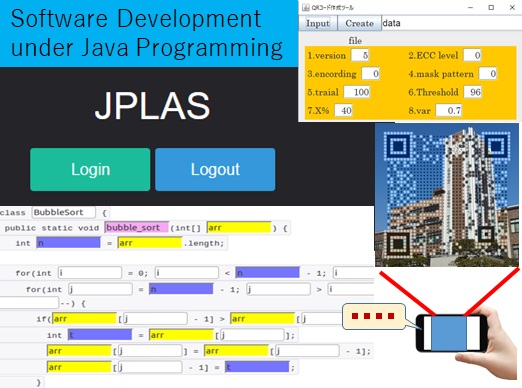
Distributed System Design [FUNABIKI Nobuo (Professor)]
We conduct research in safe, efficient, and advanced use of networks. Our research themes include a group signature scheme based on public key cryptography and its application to anonymous authentication; a wireless mesh network for large-scale LANs at low cost; Web service systems to support a variety of human activities including education, cooking, shopping, and travel; automatic manual creation systems for open source software; and dependability analysis of large scale distributed systems such as volunteer computing.
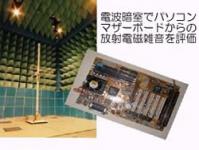
Optical and Electromagnetic Waves[TOYOTA Yoshitaka (Professor), IOKIBE Kengo (Associate Professor)]
Through our research we aim to improve the speed and reliability of telecommunication systems. Our research is related to specific design technology intended for controlling and reducing the adverse effects of unwanted electromagnetic waves, or electromagnetic noise, generated by electronic equipment such as mobile phones and PCs. We conduct research on the basis of rules followed at product development and manufacturing sites as well as knowledge of electrical circuits and electromagnetics lectured in class. Our other research topics include the development of communication technology using laser beams and remote sensing.
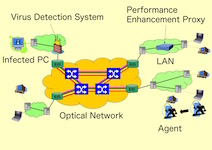
Network Systems[FUKUSHIMA Yukinobu (Associate Professor)]
At the laboratory, we conduct research to improve the speed and performance of the Internet and other information networks. More specifically, our research themes include performance improvement of TCP in data center networks, highly distributed cloud computing environment, design of optical networks, P2P live streaming and early and accurate detection of distributed denial-of-service and computer virus infection patterns.

